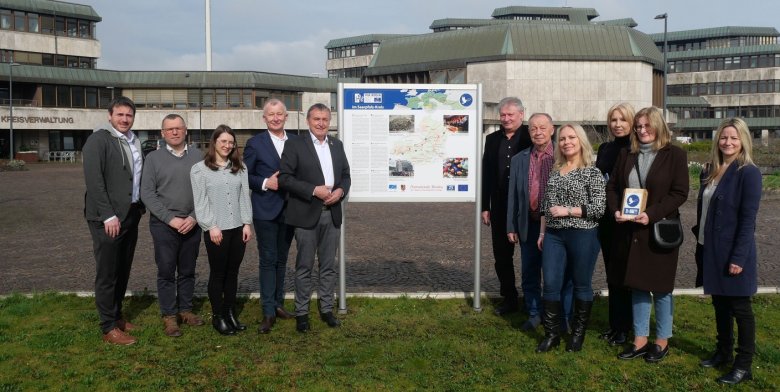"The press is certainly very uncomfortable, and not just for governments. Making the people silent is a very bad thing": when Philipp Jakob Siebenpfeiffer stood trial in Landau in the summer of 1833 together with the other figureheads of the Hambach Festival, the former Homburg "Landcommissär" (district commissioner) had clear words. He emphasised at every opportunity that freedom of the press was an essential fundamental right for him. Not without an ironic undertone, he accused the authorities of obstructing and suppressing newspapers and journalists in order to keep the population in ignorance. In keeping with the commitment of its namesake, the history of the freedom of the media guaranteed today in the German constitution is just as much a part of the Siebenpfeiffer Foundation's remit as the observation of and commentary on current developments, restrictions or threats to "freedom of the press". Every two years, the Siebenpfeiffer Foundation also awards the Siebenpfeiffer Prize, which honours journalistic commitment that has no regard for professional careers or financial gain.
World Press Freedom Day, which was introduced by the United Nations General Assembly in 1993 at the suggestion of UNESCO and is celebrated on 3 May, is an annual occasion to draw attention to the hard-won and sacrificed right to freedom of expression. Independent and free media - newspapers, television, radio and also the Internet - are indispensable cornerstones of democratic countries. They should inform the public independently and truthfully about developments, current affairs and world events, point out grievances and contribute to the formation of public opinion through criticism and diverse discussion. "Siebenpfeiffer demanded nothing less in his statement in court over 180 years ago," explains Martin Baus, Managing Director of the Siebenpfeiffer Foundation. In order to be able to fulfil these tasks, a country's media landscape must be free, diverse and independent of economic or political influence.
The focus of the upcoming 31st Press Freedom Day is the global climate crisis. Global warming and the dramatic extinction of animal and plant species not only have catastrophic consequences for the weather, environment and ecosystems, but also for the lives of billions of people. Their personal stories, which often deal with death, flight, destruction and the annihilation of livelihoods, should be publicised. Raising public awareness of the disturbing effects of the climate and biodiversity crisis is an important task for the media and an important step towards tackling the problems.
The work of journalists is of crucial importance here. Their commitment, which often requires moral courage and perseverance, sharpens our view of planetary events. Journalists work on the front line, so to speak, precisely where climate change is "made" and where it has its fatal consequences. As a rule, their reporting stands in the way of economic interests, which of course also exposes journalists personally to direct risks and dangers. "In this respect, Siebenpfeiffer's perspective, according to which the journalistic mission is closely linked to education and information, is just as relevant today as it was 200 years ago during his lifetime," says District Administrator Dr Theophil Gallo, who, as Chairman of the Siebenpfeiffer Foundation, also looks after the historical legacy of Homburg's first "land commissioner" and who studied the aforementioned trial against the Hambach protagonists as part of his doctoral thesis in 1994. "In view of the upcoming European elections, I would also like to emphasise that Siebenpfeiffer was already a committed advocate of an equally free and democratic Europe back then," said the Chairman. Overall, he recommends taking a look at the website of "Reporters Without Borders", which documents the situation of press freedom worldwide and compiles a ranking of press freedom.

District Administrator Dr Theophil Gallo (5th from left) with members of the Polish delegation and employees of the district administration in front of the first information board on the "VIA REGIA in the Saarpfalz district". Photo: Sandra Brettar
